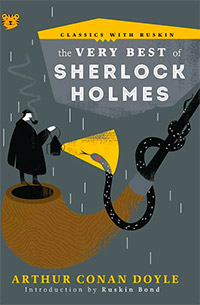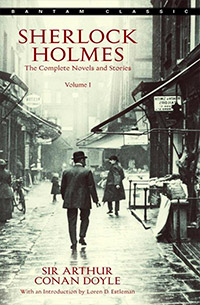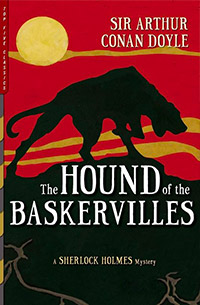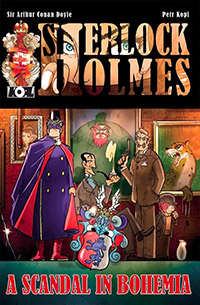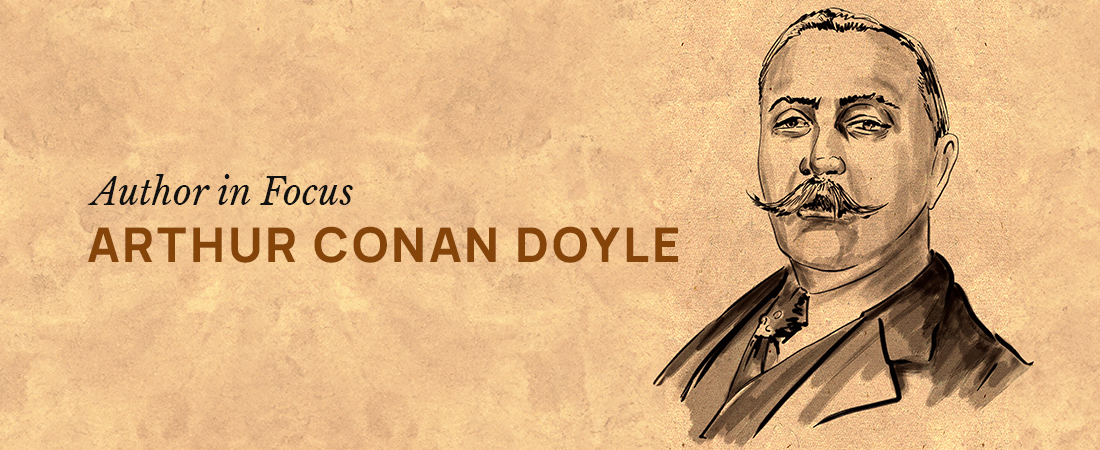
These 10 facts will help you know more about the writer of Sherlock Holmes detective stories.
Sir Arthur Conan Doyle isn’t just a name; it’s a legacy revered for creating the quintessentially brilliant detective, Sherlock Holmes. As we spotlight him as our “Author in Focus” this May, his birth month, here are 10 facts that will help you appreciate the brilliance of the Master of Mystery!
1. A Man of Medicine Turned Master Storyteller
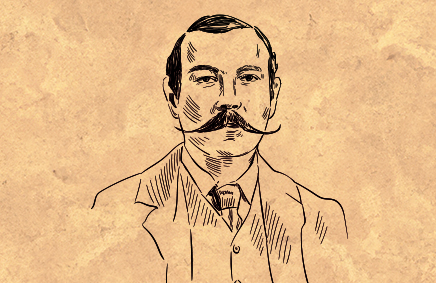
Initially trained as a physician, Sir Arthur Conan Doyle found his true calling in the world of words. While balancing his medical career, he began crafting stories that would eventually immortalise him as one of the greatest writers in English literature.
2. Early Influence

During his university years, Doyle was greatly influenced by Dr. Joseph Bell, whose keen powers of observation, logic, and deductive reasoning would later inspire the character of Sherlock Holmes. This melding of scientific training and literary influence shaped Doyle into a multifaceted writer and thinker.
3. Birth of a Legend: Sherlock Holmes

The Old Kingdom, crafted by Garth Nix, is a land where the veil between life and death is thin. Sabriel, the protagonist, inherits the title of Abhorsen, a necromancer who protects the living from the Dead. This land, with its magical Wall separating it from the more mundane, yet modern Ancelstierre to the South, is intrinsically linked to Sabriel’s growth. Her journey through this eerie and dangerous landscape, from the safety of her school in Ancelstierre to the heart of the Old Kingdom, mirrors her internal journey from naivety to maturity. The Old Kingdom’s dark, gothic setting is not only a backdrop but a catalyst for Sabriel’s adventures in The Old Kingdom series, challenging her to master her powers and her destiny.
4. Pioneer of Forensic Science

Holmes’s techniques, such as fingerprinting, bloodstain analysis, and the study of tobacco ashes, were revolutionary at the time when they appeared. For instance, fingerprints are first mentioned in The Sign of the Four published in 1890, while Scotland Yard did not use fingerprints until 1901. This was in stark contrast to the detective fiction of the era, which often relied on intuition or coincidental discoveries.
5. Redefining the Detective Genre

The Hound of the Baskervilles remains a cornerstone of detective literature due to its pioneering blend of the detective genre with gothic elements, a novel technique at that time, and hence broadened the scope and appeal of mystery narratives. First serialised in 1901-1902, it cemented Holmes’ reputation as a master of deduction.
6. Bestselling Detective

Doyle wrote four novels and 56 short stories featuring Sherlock Holmes. These were published between 1887 and 1927, culminating with The Case-Book of Sherlock Holmes. These works have not only never gone out of print but have also been translated into numerous languages, making Holmes one of the most popular literary characters.
7. Adventures Beyond Baker Street

Although best known for his detective stories, Doyle’s body of work extends far beyond 221B Baker Street. From the sci-fi novel The Lost World, historical adventure The White Company to Rodney Stone, a Gothic mystery and boxing novel, his versatility as a writer is truly remarkable.
8. Personal Struggles and Spiritual Quests

Doyle’s life was deeply affected by personal tragedies. His first wife, Louisa Hawkins, passed away in 1906 after a long battle with tuberculosis, and his son, Kingsley, succumbed to pneumonia in 1918. These personal influenced the darker and more introspective themes in Doyle’s later writings, including his exploration of spiritualism and the afterlife.
9. A Voice for the Voiceless

Doyle used his influence to correct miscarriages of justice, most notably in the case of George Edalji. Edalji, a solicitor of Indian heritage, was wrongfully convicted of mutilating animals and Doyle’s efforts led to his pardon. Doyle’s involvement in these cases highlighted flaws in the British legal system and helped catalyse reforms.
10. Enduring Legacy

Decades after his death, Doyle’s work continues to be celebrated, adapted, and loved by new generations. Whether through film, television, or reimagined literature, Sherlock Holmes remains as relevant as ever.

